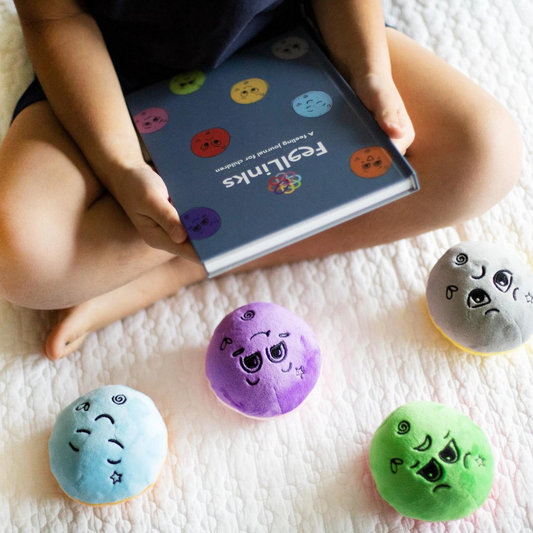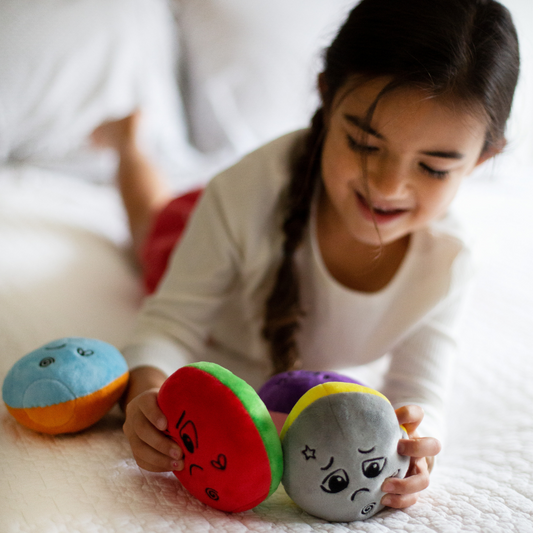Tips For Establishing Positive Relationships and Open Communication With Your Child's Teacher
Share

With the recent start of the new school year, I thought I would focus on establishing positive relationships and open communication between parents and teachers. If we can keep the lines of communication open and respectful, everyone involved will find greater success in school.
Research tells us that increased parent-teacher communication improves student engagement in the classroom (Kraft, M. A., & Dougherty, S. M. 2013). Research also tells us that the more information communicated between parents and teachers, the better equipped they will be in supporting the child with academic success (American Federation of Teachers, 2007).
There are several things that you can do to open the lines of communication - remember the lines go both ways. Teachers should be communicating out what is happening school wide, class wide, and individually with your child. Additionally, parents should be communicating to the teacher how their child's social, emotional, and academic development are fairing.
Here are some important things you can do in order to establish a positive parent-teacher relationship.
1. Attend curriculum night/back to school events. This is a great time to meet your child's teacher(s) face-to-face (if yours is not held in-person, but rather online, be sure to turn on your computer camera for a face-to-face meeting). During the event, you will want to introduce yourself to the teacher(s), take notes, collect any handouts, fill out any paperwork, and sign up for volunteering if you are able. This is a great place to hear an overview of important information about your child's school year ahead. A great start to positive and meaningful school engagement.
2. Read all communication/review class website. I know sometimes if feels like we are getting an overload of communication and we are not always sure what to read or when to find the time to read it. I cannot stress enough how vital it is to read everything that is sent your way. This will help you stay in the loop and avoid asking your teacher questions that are already posted in their communications. Often classroom websites are set up for communications, check them often. Maybe even set a reminder on your calendar to check it once a week.
3. Communicate with your teacher at appropriate times. Always make an appointment to speak with your teacher about your child. This way everyone is prepared to have a positive, productive conversation. Times to avoid these conversations are: drop off/pick up, run ins in the hallway, school events, curriculum night, and any other unscheduled time. Email or call your teacher to set up an appointment. Be sure to let them know what you would like to discuss, this way everyone can come prepared to the meeting.
4. Be patient, positive and courteous. Be patient! your child's teacher has many students and much to attend to. Your child is important to them and they will communicate with you when they are able. Our teachers are teaching students all day and may not necessarily have time to call or email you back right away. Most teachers have a communication plan - please read it and follow the plan they have set forth. Always be courteous - do not send an email or make a call when you are angry. Find time to calm before communicating.
5. Be supportive. Supporting your child means supporting their teacher(s). While you may not always agree with the teacher, it is important that you speak positively about them in front of your child. Discuss the importance of school and let your child know that you are all on the same "team".
6. Keep lines of communication open. If you have something important to share with your teacher, be proactive and communicate it early. If your child is expressing difficult feelings - whether it be about peers, school work, or big changes happening at home, it is vital to share them with your teacher. Together, you can make a plan.
If you have any questions or clarifications - whether it be about homework, checking in on behavior or social skills - whatever it may be, keep the lines of communication open all year long.
Some things you might ask your teacher during the school year:
"What can I do to support my child at home?" "What can I do to support you?"
7. Attend parent-teacher conferences. This is a set time built in to the school year to meet with your child's teacher(s). Take advantage of this meeting. Your child's teacher works extremely hard putting together meaningful information to share about your child's social, emotion and academic development. Please do not miss it! It's important for your child's success in school for you to be in attendance.
8. Show your appreciation. Sending a little handwritten note or email letting your teacher(s) know how much you appreciate them goes a long way! I love dropping off their favorite hot beverage - you can never go wrong with a hot coffee or tea. To celebrate birthdays, holidays and end of the school year, maybe work on getting together a meaningful class gift.
PRO TIP: Each year I have my kids' teachers fill out a "favorite things" survey so that I can gift them their favorite flowers, foods, drinks, and more! Below is a sample of one I have used in the past. I hope you find it useful! Maybe send it along to your child's teacher today.
Cheers to a great school year ahead! Thank you to all of the school staff out there - eternally grateful you! Thank you to the parents and caretakers for being on your child's "team", creating open and positive communication with them and their teachers, and being a great support through their years of education.





